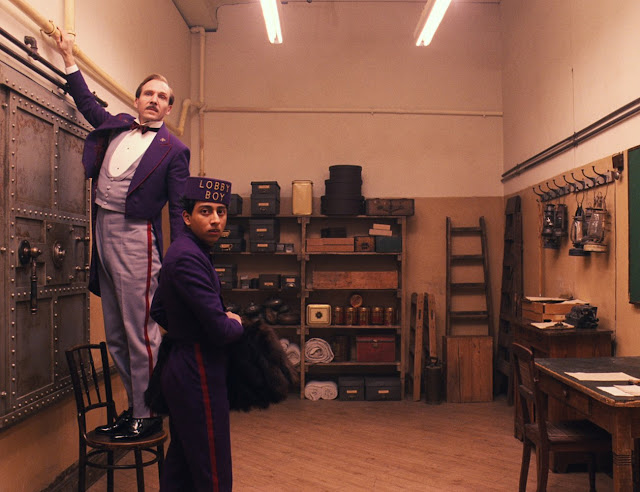At the moment, two of my favourite directors are Damien Chazelle and Wes Anderson. Though heavily different in genre, the definite focus of their films and choices in cinematography draw me to their films.
The often abstract nature of Wes Anderson's films has allowed them to develop their own independent style beyond the conventions of established cinema. The random, abrupt straight cuts between shots and often absence of long takes is directly reflected in the development of characters. The only way I can really describe Anderson's work is bizarre. The vibrancy of colour palette and subverting of film conventions is consistent in his work. His 2012 feature Moonrise Kingdom and The Grand Budapest Hotel of 2014 are both told to the audience by a narrator. Not an omniscient narrator but one active in the plot, breaking the so called fourth wall.
Real, meaningful character relationships are developed on the most surreal backdrop. Anderson cleverly balances both comedy and drama. One key channel for this in The Grand Budapest Hotel, in my opinion, is the relationship between M. Gustave and Zero.The immense shot variety is what I love about these films (alongside the abundance of quirky characters). Constant change of perspective and audience positioning fully immerses them in the story. For me, I feel like a fly on the wall watching the events unfold whilst other times(particularly in Moonrise Kingdom) I feel like one of the characters in the film. The opening to Moonrise Kingdom sees a fluid pan across a house, room to room almost like a dolls house. This is followed by close ups, POV shots, shot reverse shot, any shot you can think of!!!




No comments:
Post a Comment